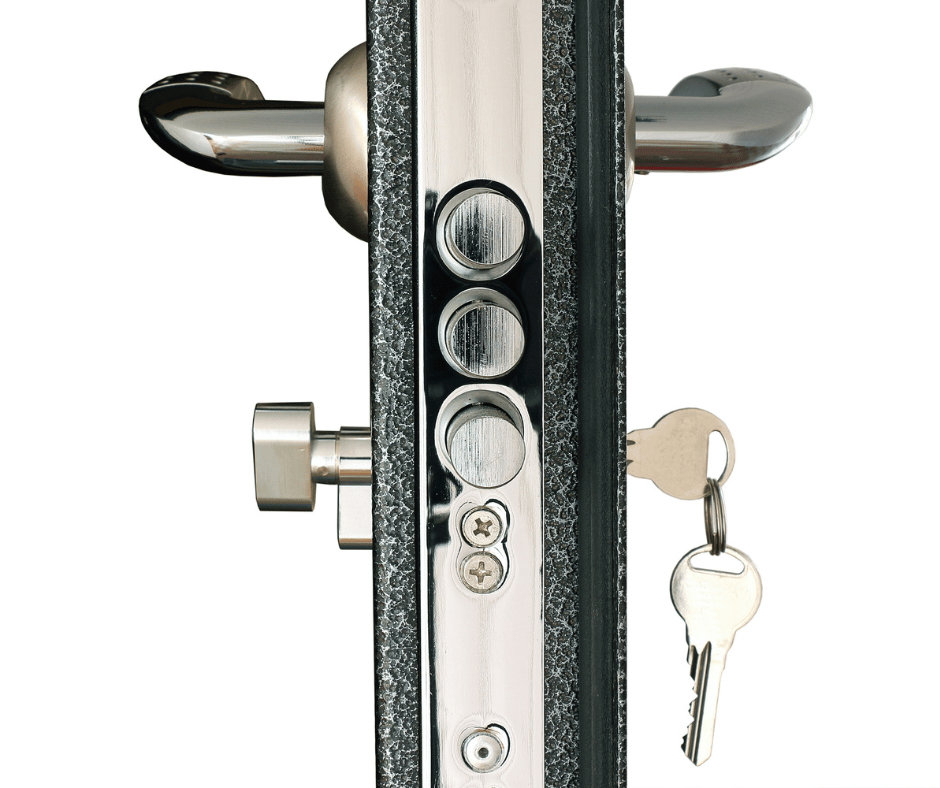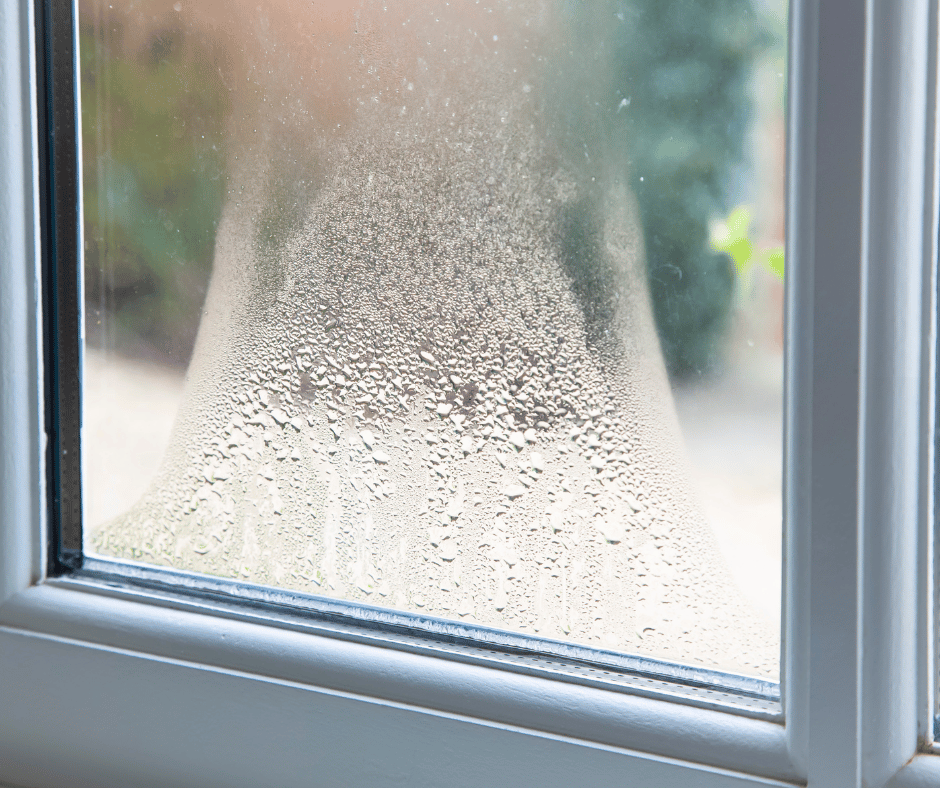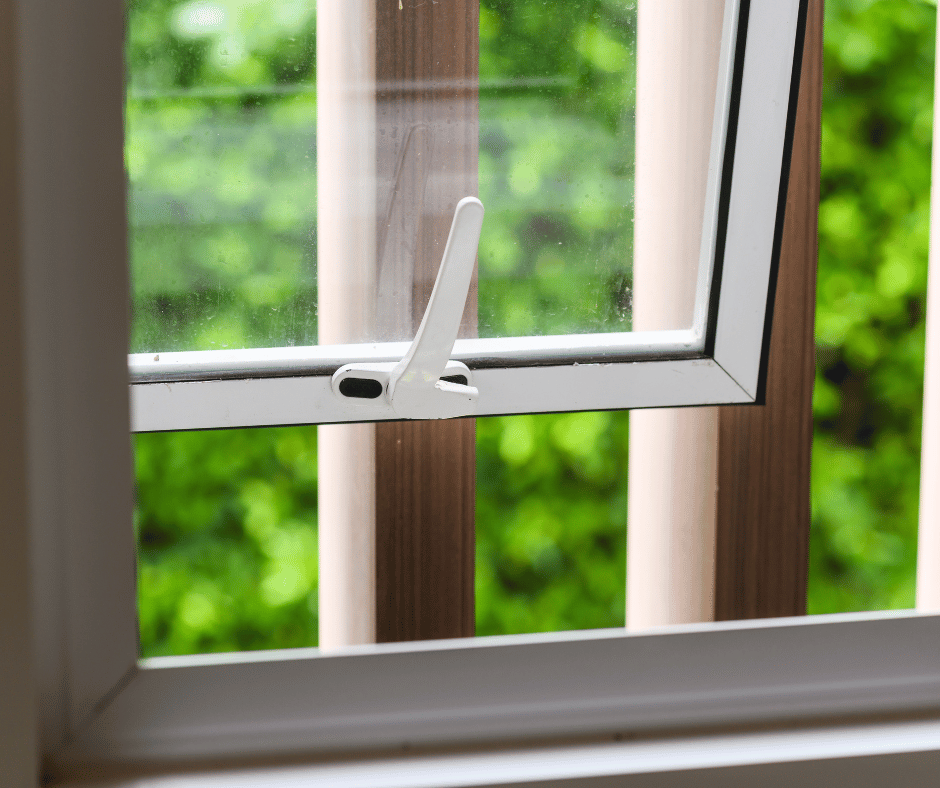Can a composite door be broken into? It’s a common question for homeowners who prioritise security. Composite doors are becoming increasingly popular, thanks to their superior strength and durability. Designed with multi-layered materials, they offer excellent resistance against forced entry. But, like any door, their security depends on the features built into them.
In this post, we’ll explore composite door security in detail. We’ll explain why these doors are harder to break into compared to other door types, such as timber, uPVC, and aluminium. You’ll also discover the advanced security technologies that make composite doors a top choice for home security and door break-in prevention.
Whether you’re looking for the best front doors for security, or just want peace of mind. This guide will help you make the right decision.
Key Takeaways
- Highly Secure Design: Composite doors are designed to resist common break-in methods, such as kicking, drilling, and lock-picking. Their multi-layered construction, including a solid timber core and a GRP outer shell, provides superior strength and durability.
- Superior to Other Door Types: Compared to timber, uPVC, and aluminium doors, composite doors offer better resistance to forced entry, advanced multi-point locking systems, and enhanced weather resistance.
- Security Certifications: Composite doors are rigorously tested to meet high security standards, including PAS 24 and Secured by Design, ensuring top-tier protection for your home.
- Common Myths Debunked: Misconceptions about composite doors being too heavy, easy to tamper with, or less secure because of their traditional appearance are unfounded. They are among the most secure doors available.
- Celestial Windows Quality: At Celestial Windows, our composite doors are built to the highest standards. We offer 10-year guarantees, certified security features, and professional installation to ensure long-term protection and peace of mind.
Can Composite Doors Be Broken Into?
Can composite doors be broken into? While no door is entirely impenetrable, composite doors are among the most secure options available. They are designed to withstand common break-in methods, making them highly resistant to forced entry. These doors combine a solid timber core with a tough outer layer of glass-reinforced plastic (GRP), giving them extra strength compared to traditional doors.
One misconception is that all doors are equally vulnerable to break-ins. However, break-ins through composite doors are much less common due to their multi-layered construction and advanced locking systems. Composite doors are specifically designed to endure various attacks. These include kicking, drilling, and lock-picking. Unlike timber doors, which can weaken over time, or uPVC doors, which can be less durable. Composite doors offer far better protection against these threats.
When it comes to composite door security risks, their design minimises potential weak points. They typically include multi-point locking systems and toughened glass. Composite door hinge types are highly effective in securing the door. All of these features are aimed at preventing forced entry. So while no door is unbreakable, composite doors provide a robust barrier that makes break-ins far less likely than with other types of doors.

Why Are Composite Doors So Difficult to Break Into?
Composite doors are much more difficult to break into compared to traditional doors. This is thanks to their advanced construction and security features. The core of a composite door is made from solid timber, which provides incredible door strength. Surrounding this core are layers of insulating foam and a robust outer shell of Glass Reinforced Plastic (GRP). This multi-layered design gives composite doors their toughness, making them far more resistant to break-ins than timber or uPVC doors.
One of the key reasons for the composite door security advantage is the GRP security outer skin. GRP is lightweight but incredibly durable, able to withstand impacts that could easily damage other types of doors. This outer layer resists weathering, meaning it doesn’t weaken over time like wood, and it won’t warp or crack, which can compromise the security of other doors.
Composite doors are also tested to meet high security standards, such as PAS 24 and Secured by Design. PAS 24 is a UK security standard that ensures doors can withstand various forms of attack, including drilling, crowbar use, and impact. Secured by Design is an initiative by UK police that promotes doors designed to prevent crime. If a composite door has these certifications, homeowners can trust that it has been rigorously tested and meets strict requirements for protecting their home.
Composite doors are built to withstand even the most determined break-in attempts. Their solid core, reinforced GRP layer, and advanced locking systems make them one of the most secure options on the market.
Composite Doors vs Other Door Types
When comparing composite door security with other popular door types, it’s clear that composite doors provide superior protection due to their unique construction. Let’s examine how they stack up against timber, uPVC, and aluminium doors.
Composite vs Timber Doors
- Warping and Weakening: Timber doors are prone to warping over time, especially with exposure to moisture, which weakens the door and creates gaps.
- Long-Term Durability: Unlike timber, composite doors maintain their structure and strength for years, without the risk of warping or cracking.
- Solid Core Strength: Composite doors have a robust solid core, providing higher resistance to break-ins compared to timber’s weaker structure.
- Weather Resistance: Composite doors are highly weather-resistant, protecting the door from degradation, whereas timber is more susceptible to damage.

uPVC Doors vs Composite Doors
- Material Strength: uPVC doors are made from lightweight plastic, which is easier to force open compared to the solid, multi-layered structure of composite doors.
- Advanced Locking Systems: Composite doors are often fitted with multi-point locking systems, which add extra layers of security that uPVC doors may lack.
- Durability: uPVC doors can degrade and become brittle over time, while composite doors retain their strength and security for years.
- Security Advantage: Composite doors offer better protection against forced entry due to their reinforced core and stronger outer materials.
Composite vs Aluminium Doors
- Core Strength: Aluminium doors are durable but lack the reinforced core found in composite doors, making them slightly less secure.
- Layered Security Features: Composite doors combine multiple materials for extra strength, while aluminium doors rely on a single material, which may not offer the same level of resistance to forced entry.
- Energy Efficiency: Composite doors provide better insulation, enhancing both energy efficiency and security, while aluminium doors may struggle with thermal performance.
- All-Weather Performance: Both door types are highly weather-resistant, but composite doors offer the added benefit of advanced security features.
Common Myths About Composite Door Security
Here are some of the most common composite door break-in myths.
- Composite doors are too heavy to be secure.
- The locks on composite doors are easy to tamper with.
- Composite doors, because of their traditional appearance, are less secure.
Below, we will debunk each of these common myths.
Composite Doors Are Too Heavy to Be Secure
Some believe that the weight of a composite door makes it harder to secure. In fact, the opposite is true. The door’s weight comes from its solid core and multi-layered construction, which enhances its strength and durability. This design makes composite doors far more resistant to break-ins than lighter doors like uPVC.

The Locks on Composite Doors Are Easy to Tamper With
A common concern is that composite door security can be compromised through lock tampering. However, most composite doors come with advanced locking systems, including anti-snap and multi-point locks. These features make it extremely difficult for intruders to tamper with or bypass the locks.
Composite Doors Look Traditional, So They Must Be Less Secure
The traditional appearance of composite doors can lead to the misconception that they are less secure. However, composite doors meet high-security standards, such as PAS 24 and Secured by Design, ensuring that they are not only durable but also equipped to withstand modern break-in methods.
In reality, composite doors offer a high level of security and protection, debunking these common myths.
Common Questions About Composite Door Security:
Can composite doors be broken into?
Composite doors are highly resistant to break-ins due to their multi-layered construction, solid timber core, and advanced locking systems. While no door is completely impenetrable, composite doors offer far greater protection than traditional timber or uPVC doors, making break-ins much less likely.
What makes composite doors more secure than uPVC or timber doors?
Composite doors are more secure because they combine materials like a solid timber core and a tough GRP (Glass Reinforced Plastic) outer layer. This provides superior strength and durability compared to the lighter plastic of uPVC or the warp-prone wood of timber doors. Their multi-point locking systems also add an extra layer of security. For more info check out our guide on uPVC vs Composite Doors.
Are composite doors certified for security?
Yes, many composite doors, including those from Celestial Windows, are certified under PAS 24 and Secured by Design standards. These certifications mean the doors have passed rigorous security tests to withstand forced entry, ensuring maximum protection for your home.
Do composite doors require a lot of maintenance?
No, composite doors are low-maintenance. Unlike timber doors, they do not warp, crack, or require regular painting. The GRP outer layer is resistant to weather and wear, ensuring long-lasting durability with minimal upkeep. This means you don’t have to repaint them. However some homeowners may choose to, to change the style of their exterior. Here is a step by step guide on how to paint a composite door.
How long do composite doors last?
Composite doors are built for longevity. With proper care, they can last over 30 years, and at Celestial Windows, our doors come with a 10-year guarantee to ensure quality and durability.
What To Look for in a Highly Secure Composite Door
When choosing a secure composite door, it’s important to focus on both quality and certifications. At Celestial Windows, we provide composite doors that offer exceptional security and long-term reliability, backed by industry-leading standards. We’ve received fantastic testimonials from our customers about our composite doors. Here’s what sets our doors apart:
Key Benefits of Choosing a Composite Door from Celestial Windows:
- Certified for Security: Our doors meet Secured by Design and PAS 24 certifications, ensuring they are tested against break-in attempts and built to withstand various forms of forced entry.
- Durable Construction: Each door is made with a solid timber core and robust outer layers, providing superior strength and resistance to wear and tear.
- 10-Year Guarantee: Every composite door we install comes with a 10-year guarantee, a testament to the durability and long-lasting quality of our products.
- Professional Installation: Our expert team of trusted door installers ensures every door is fitted securely and efficiently, minimising potential vulnerabilities. This includes working closely with certified locksmiths for optimal lock security.
- Reputation for Excellence: With years of experience, Celestial Windows is known for delivering high-quality, reliable composite doors, offering homeowners peace of mind and security.
Choosing a composite door from Celestial Windows means investing in a door that combines advanced security features with top-tier craftsmanship. Contact us today to schedule a home security assessment and explore our range of secure composite doors designed to enhance your property.




